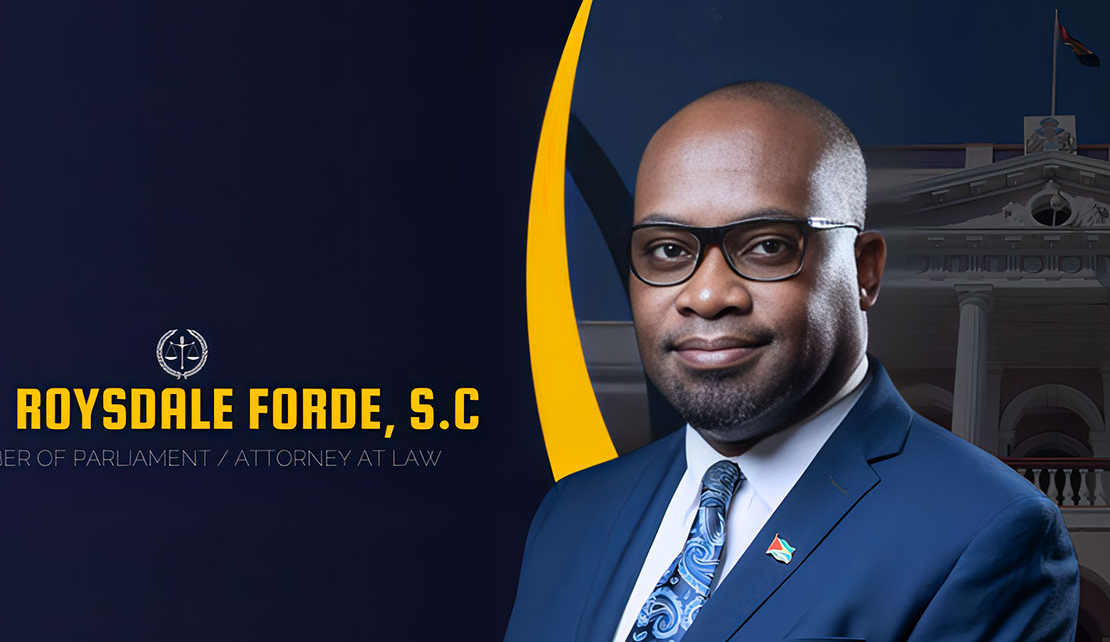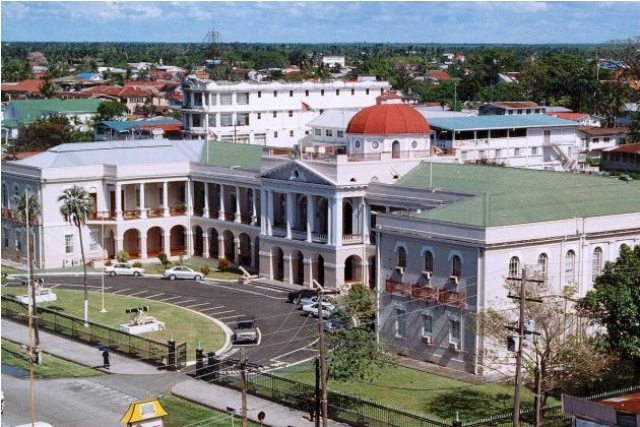GUYANA | Forde wants a reform of the Guyana Constitution to guarantee equality

GEORGETOWN, Guyana, August 18, 2023 - Against the background of racial challenges being experienced by Afro-Guyanese, Shadow Minister of Justice Roysdale Forde says “the Constitution of Guyana is in need of radical change and reordering if the “Oil Rich Guyana” is going to be an equitable Guyana. The State must be made to walk the extra mile to end racial inequalities.
“We must, in this “Oil Rich Guyana,” ensure that prosperity and wealth must be placed in the hands of all, particularly the poor of all the races in a manner that leaves no group or race behind, Forde told the Buxton First of August Movement and the Society for African Guyanese Empowerment at the the Eusi Kwayana Emancipation Symposium earlier this month.

“The discovery of oil and consequential wealth will most likely create greater income inequalities, social instability, exclusion and marginalisation, if the constitutional and legal system is not radically altered in a manner to promote equality and equitable distribution of resources and opportunities,” Forde observed.
The shadow minister of Justice said while the Constitution of Guyana expresses and declares a commitment to the ideals and principles of equality and non-discrimination, “The provisions which have been part of our Constitutional system in various formulations have proven incapable and ineffective in substantially reducing the inequalities which exist among the races in the country.”
Quoting from Collin Constantine’s paper on Income Inequality in Guyana, he said new evidence from Survey Data 2022 found that: “Indo-Guyanese and Indigenous-Guyanese are over represented among the top 10% income earners relative to their share of the total population.
For example, Indo-Guyanese make up 43% of the total population, but account for a larger percentage of the top 10% income group.
In contrast, Afro-Guyanese and Mixed-Guyanese are underrepresented in the top 10%, but overrepresented among the bottom 90% income earners. Their share of the total income accruing to the bottom 90% exceeds their share of the total population.
“This violates distributive justice because it indicates that Indo-Guyanese and Indigenous-Guyanese are unfairly advantaged in accessing top incomes, while Afro-Guyanese and Mixed-Guyanese are disadvantaged and concentrated among the low-income majority,” Forde lamented.
The income differences along ethnic lines are significant enough that they contradict principles of fair and equitable distribution of income across all ethnic groups relative to their population sizes.
Forde noted that “there is an unequal ethnic distribution of income, with Indo- and Indigenous-Guyanese overly represented among top earners and Afro- and Mixed-Guyanese overly concentrated among lower earners compared to their population shares. This violates notions of distributive justice,” he pointed out.
The Shadow Justice Minister also looked at the 2022 UNICEF report which pointed to Children from rural areas, urban poor families, indigenous communities and other marginalized groups who suffer from multiple poverty-related deprivations.
The lack of social protection measures contributes to the cycle of domestic violence, abuse and neglect. The most vulnerable children belong to already disadvantaged groups such as indigenous and tribal peoples and the urban poor.
“This amplifies the urgent need for adequate investment in social services and the provision of child-sensitive, risk-informed and portable social protection systems that reach those most in need,” Forde said.
“As at 2023, one ought not to be shocked to find that there has been no observable impact on income inequality among races.Moreover, there has been no dent in poverty. 32% of the Indigenous people live in poverty; 15% of Indo-Guyanese live in poverty; 20% of the Afro-Guyanese live in poverty.
There is no passion or political will power to address the income inequality among the races and the wider issue of racial inequality.”
The Constitutional system, despite its laudable expressions and lofty declarations have yielded insufficient progress in the realization of equality.
Forde concluded that “the failure to establish the Human Rights Commission, the failure of the Ethnic Relations Commission to discharge its duties, the unenforceability of social and economic rights regime in the Constitutional System, the lack of political will; has resulted in the cementing of systemic and structural discrimination and racial inequality in Guyana.
“Racial Equality will only be achievable if there are substantial alterations to our Constitutional system,” Forde maintained.
